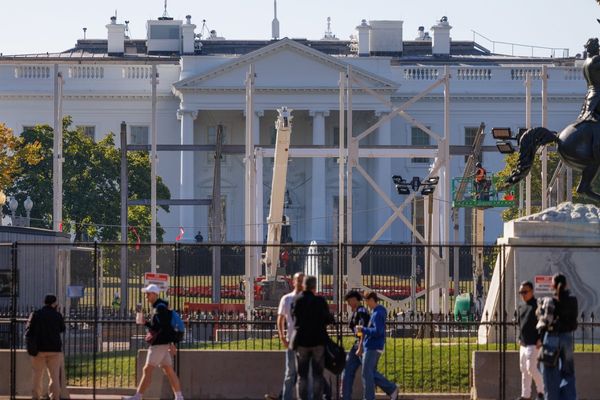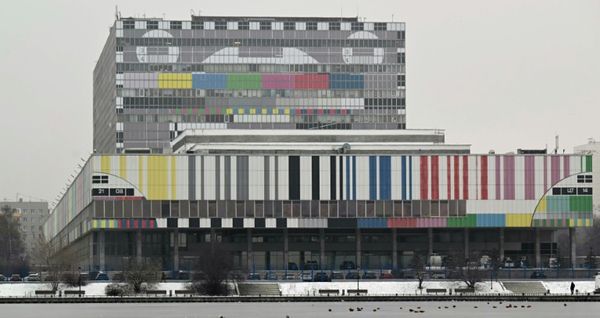WASHINGTON _ California and like-minded states are girding for a legal battle with the Trump administration on whether those states have gone too far in controlling greenhouse gases from automobiles, a prospective case that legal scholars say _ barring a last-minute settlement _ is sure to reach the U.S. Supreme Court.
The Environmental Protection Agency and other federal agencies are expected to announce, as soon as this week, a rollback of national fuel economy standards for vehicles. They could also revoke California's ability to set its own, tougher, air pollution limits.
If the Trump administration challenges California's long-standing latitude to set its own emissions rules, it would be wading into untested legal waters, said Deborah Sivas, a law professor and expert on the Clean Air Act at Stanford University.
"It will be a giant case," Sivas said, adding that multiple states will join California in suing the federal government.
"There's no question it will be litigated at every turn, and no doubt it's going to make it to the Supreme Court," with its new mix of judges, possibly including President Donald Trump's latest nominee, Brett Kavanaugh, she added.
The upcoming announcement stands to be the first major decision involving Andrew Wheeler, a former coal industry lobbyist and EPA veteran who became the acting EPA chief this month, following the resignation of Scott Pruitt. Citing unnamed sources on Monday, Bloomberg News reported that Wheeler and the While House will seek to revoke California's regulatory authority over greenhouse gases while also rolling back Obama-era national rules on vehicle fuel efficiency.
On Tuesday, at least one industry insider said the Trump administration may stop short of fully revoking California's authority to set emissions standards and defer a decision until later.
Jeff Holmstead, a Washington-based lawyer and assistant EPA administrator during the George W. Bush administration, said he has heard the White House will seek public comment on a range of proposals, floating the idea of revoking California's authority but not formally proposing it.
"They'll give themselves the option of then revoking the California waiver in the future," said Holmstead, a partner with the Bracewell law firm in D.C.
A White House spokeswoman did not immediately respond for comment.
California and other states have big stakes in Trump's decision and subsequent litigation, as do U.S. and foreign automakers. California and the 12 states that have adopted its rule account for about half of the U.S. automobile market. That gives them clout in influencing how the automakers design and market their vehicles, including low-and-zero emission models, such as electric cars.
In 2009, California received a waiver from the EPA, allowing it to set its own limits on greenhouse gases from vehicles, effectively mandating that vehicles sold in California burn less fossil fuel. After the Obama administration bailed out much of the U.S. auto industry immediately after the 2008 recession, it pressured automakers to agree to a 2011 plan to increase fuel efficiency by 2025, to an average of 54.5 miles per gallon.
When Trump came to office, the auto industry lobbied for a rollback in those fuel economy standards. The EPA and National Highway Traffic Safety Administration are expected to announce that rollback as soon as this week, arguing that it will improve public safety by allowing more large vehicles to be sold.
But if California and the 12 other states and the District of Columbia retain their own emission rules, car makers would have to either market two different sets of cars or sell California-compliant cars nationwide. The automakers say the California Air Resources Board rules for vehicle model years 2022-2025 are onerous and impractical, despite a CARB analysis in 2017 concluding that the standards are technologically feasible.
If the Trump administration moves to revoke California's authority on regulating vehicle greenhouse gases, the administration would likely deploy two legal arguments, say Sivas and Holmstead.
Under the 1970 Clean Air Act, California was allowed to set rules stronger than the federal government's, to confront "compelling and extraordinary conditions," among other provisions. ,California has long suffered from the nation's worst air pollution, one reason it started restricting smog-forming emissions long before passage of the Clean Air Act.
In its legal analysis, Holmstead said, EPA could determine that California did not face "compelling extraordinary conditions," compared to other states, in needing to reduce greenhouse gases, such as carbon dioxide. The state's large population and geography contribute to serious smog problems, he said, but "when it comes to CO2 emissions, you know, California's really in the same place as anyone else."
The federal government could also argue that the 1975 statute that governs automobile efficiency _ the Corporate Average Fuel Economy law _ pre-empts California from setting its own fuel economy standards. Although California argues its rules are not fuel economy standards in word or practice, "they are very much related to fuel economy," Holmstead said.
Sivas said the argument over federal pre-emption will likely be part of any future court case, but is weaker than the legal theory that California does not face "extraordinary circumstances" is setting its own greenhouse gas rules.
"It's an open question whether that provision (in the Clean Air Act) was intended to only deal with local pollution involving extraordinary conditions," said Sivas, who was an attorney for Earth Justice, an environmental law firm. "It has never been fully litigated."
Two cases at the U.S. District Court level _ one in California, and one in Vermont _ affirmed the authority of both states to regulate greenhouse gases. But neither of those cases was heard in U.S. appeals courts or the Supreme Court, meaning they are unlikely to have much bearing on any future Supreme Court deliberations.
The White House announcement awaits a final review by several agencies involved, including the EPA, National Highway Traffic Safety Administration and Office of Management and Budget.
California and other states have already fired a warning shot. In May, California, 16 other states and the District of Columbia filed a federal suit aiming to preserve fuel economy standards expected to produce cleaner cars of the next decade. "We're losing the battle on climate change. We've got to step up our efforts," California Gov. Jerry Brown said at a news conference announcing the lawsuit.







